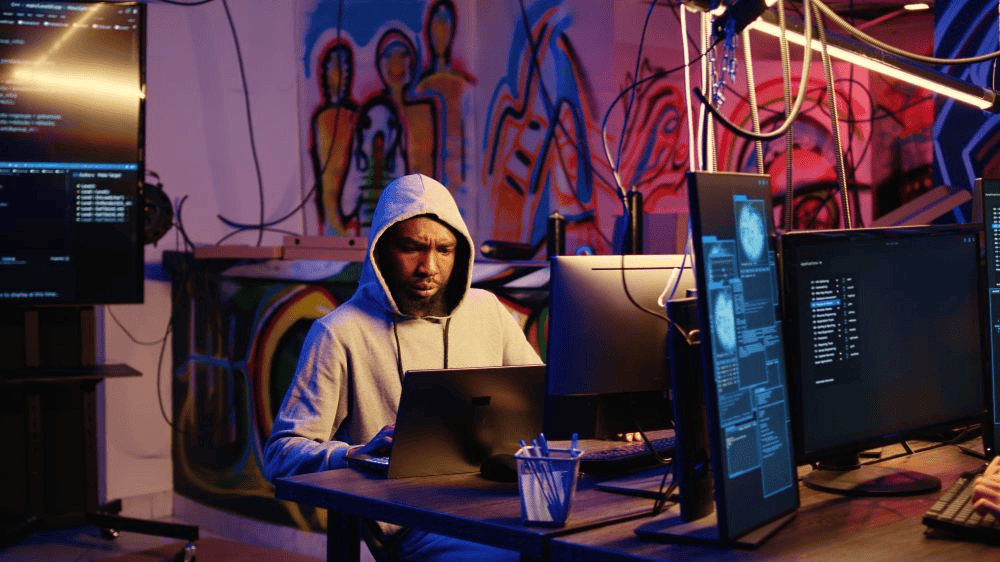
We live in a time where much of our lives are shared online and the threat of having personal or private information exposed maliciously is a growing concern. Doxxing, a term that many have come to fear, involves the release of someone’s private information without their consent. This might not be from an internet service provider every time.
This article aims to provide clear, accessible legal guidance for those who wonder, “Can you sue someone for doxxing you?”
What is Doxxing?
Doxxing, derived from “dropping documents,” involves the public release of someone’s identifying information, such as:
- Home address
- Phone numbers
- Social security number
- Even details about family members.
This information can be sourced from social media accounts, public records, data brokers, or other online platforms. Regardless of how the personally identifiable information leaked, it can be a threat. It falls under cyber harassment and can be a danger to a person’s identity.
What is the Purpose of Doxxing?
The intent behind doxxing varies, but it often involves malicious intent. Some common reasons include:
- Harassment and Intimidation: To scare or harass the victim.
- Revenge: To get back at someone for a perceived wrong.
- Political or Ideological Reasons: To silence or intimidate those with opposing views.
- Exposure: To publicly shame or discredit someone.
Additionally, people like internet trolls can also be a big complication. You can make a simple Google Search and find out more information about such illegal activities.
Examples of Doxxing: Identity theft and More
Doxxing can take many forms, including:
- Publishing someone’s home address and phone number on social media.
- Releasing private or sensitive information, such as financial personal details or medical records.
- Sharing photos of a person without their consent, especially in compromising situations.
- Posting details that reveal the identity of anonymous social media users.
Doxxing Laws: Is Doxxing Illegal?
The legality of doxxing can be complex, as it often intersects with issues of free speech and privacy. In the United States, there is no federal law specifically prohibiting doxxing, but various state and federal laws can be applied, depending on the circumstances.
Protections Under New Anti-Doxxing Law For Personal Details
Some states have begun to implement specific anti-doxxing laws. These laws typically make it illegal to intentionally publish someone’s personal information with the intent to cause harm. For example, Nevada has enacted laws to protect against doxxing, providing victims with legal recourse.
What is Not Covered Under the Anti-Doxxing Law?
Anti-doxxing laws generally do not cover the release of information that is already public, such as details from public records or information that the individual has voluntarily shared online. The intent behind sharing the information also plays a crucial role; sharing information without malicious intent may not be covered under these laws.
How Can Doxxing Harm a Victim?
Doxxing can have severe repercussions, including:
1. Emotional Distress:
Victims often suffer from anxiety, fear, and stress.
2. Physical Harm:
In extreme cases, doxxing can lead to stalking, harassment, and even physical violence.
3. Financial Impact:
Victims may face identity theft, financial fraud, or lost wages.
4. Reputational Damage:
Personal or sensitive information released can tarnish someone’s reputation, both personally and professionally.
What To Do If You Get Doxxed?
There are a few official duties that you need. If you become a victim of doxxing, take immediate action:
1. Document Everything:
Keep records of the doxxing incident, including screenshots and URLs.
2. Report to Authorities:
Contact your local police department and file a report. In some cases, federal authorities may become involved, especially if the doxxing crosses state lines.
3. Secure Your Online Presence:
Change passwords, enable multi-factor authentication, and review privacy settings on social media platforms.
4. Seek Legal Counsel:
A lawyer can help you understand your legal rights and options for pursuing action against the perpetrator.
Can You Sue Someone for Doxxing?
Yes, you can sue someone for doxxing you. Various legal avenues can be pursued, depending on the specifics of the case:
When Can You Sue Someone for Doxxing?
You can sue for doxxing if:
- The information shared was private and not already public.
- The doxxing caused you harm, such as emotional distress, financial loss, or physical harm.
- The perpetrator acted with malicious intent.
How Can You Sue Someone for Doxxing?
To sue for doxxing, follow these steps:
- Consult a Lawyer: Seek a lawyer with experience in internet harassment and privacy laws.
- Gather Evidence: Collect all documentation related to the doxxing incident.
- File a Civil Suit: Your lawyer will help you file a civil action against the perpetrator. This could be for damages related to emotional distress, financial loss, or other harm caused by the doxxing.
- Criminal Charges: In some cases, criminal prosecution may be possible if the doxxing violates state or federal laws.
Legal Ramifications and Penalties for Doxxing
The consequences for doxxing can vary widely:
- Civil Liability: Perpetrators may be ordered to pay damages to the victim.
- Criminal Charges: Depending on the severity and intent, doxxing can lead to misdemeanor or even felony charges.
- Restraining Orders: Victims can seek restraining orders to prevent further harassment.
In Nevada, doxxing can be classified as a serious crime, leading to potential jail time and significant fines. Penalties can range from misdemeanor charges resulting in county jail time to felony charges that could lead to state prison.
Can Someone Go to Jail for Doxxing You?
Yes, someone can go to jail for doxxing if their actions meet the threshold for criminal charges. This typically involves proving malicious intent and significant harm to the victim.
How to Avoid Being Doxxed
While it’s difficult to guarantee complete protection against doxxing, you can take steps to minimize your risk:
- Limit Sharing of Personal Information: Be cautious about what you share online, especially on social media platforms.
- Use Privacy Settings: Adjust privacy settings on your social media accounts to restrict who can see your information.
- Employ Security Measures: Use strong, unique passwords and enable multi-factor authentication.
- Monitor Your Online Presence: Regularly search your name on search engines to check for any unauthorized information release.
- Be Wary of Data Brokers: Opt out of data broker listings that might sell your personal information.
How an Attorney Can Help You in a Doxxing Case
Doxxing, the malicious act of publicly revealing someone’s private information without their consent, can be a distressing and overwhelming experience. If you find yourself a victim of doxxing, navigating the legal system to protect your rights and seek justice can be challenging.
An attorney with expertise in internet harassment and privacy laws can provide invaluable assistance in several ways. Here’s how an attorney can help you in a doxxing case:
Understanding Your Legal Rights:
An attorney will explain the legal landscape of doxxing and your rights, ensuring you know the protections available to you under state and federal laws.
Evaluating Your Case:
They will assess your situation, examining evidence and the harm caused, to determine the strength and viability of your case.
Gathering and Preserving Evidence:
Attorneys guide you in collecting crucial evidence, such as screenshots, messages, and records of financial or emotional harm, to build a strong case.
Filing Reports and Complaints:
Your attorney will assist in filing necessary reports with law enforcement, federal authorities, and internet service providers to document the incident and seek cooperation.
Pursuing Civil Action:
If warranted, they will help you file a civil lawsuit for damages, including emotional distress and financial loss, and negotiate settlements if possible.
Criminal Prosecution Support:
For cases involving criminal charges, an attorney will coordinate with law enforcement and represent your interests throughout the criminal justice process.
Obtaining Protective Orders:
They can help you secure protective orders to prevent further harassment or contact from the perpetrator, providing immediate relief and protection.
Advising on Privacy and Security Measures:
Attorneys offer advice on enhancing your online privacy and security, including adjusting social media settings and removing personal information from data brokers.
Advocating for Legal Reforms:
In some cases, attorneys may advocate for stronger anti-doxxing laws, collaborating with legislators and raising public awareness to enhance legal protections.

Protect Your Privacy with BLG: Take Action Today!
Doxxing is a serious issue that can have far-reaching consequences for victims. While the legal landscape is evolving, there are protections and legal recourses available. If you find yourself a victim of doxxing, taking immediate action and seeking legal guidance is crucial.
At BLG, we understand the emotional and practical challenges posed by doxxing. Our skilled legal team with extensive experience in dealing with online harassment cases, allows us to provide the support and legal expertise you need.
Contact us for a free consultation and to learn more about how we can help you deal with the complexities of doxxing and pursue justice against those who seek to harm you.
FAQs
How much can you sue someone for doxxing you?
The amount you can sue for doxxing varies based on the severity of the harm, including emotional distress, financial losses, and any specific state laws. It could range from a few thousand to potentially millions of dollars.
Can police do anything about doxxing?
Yes, police can take action against doxxing, especially if it involves threats, harassment, or other criminal activities. They can investigate, and charges can be filed based on applicable laws.
Is doxxing actually illegal?
Doxxing can be illegal, depending on the circumstances and jurisdiction. It often violates privacy laws and anti-harassment statutes and may be prosecuted under stalking laws against stalking or cyberbullying.
What is evidence of doxxing?
Evidence of doxxing includes screenshots or records of the published personal information, URLs of the postings, any threats or harassing messages received as a result, and documentation of the harm caused, such as emotional distress or financial loss.




